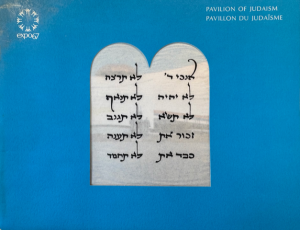Refreshingly, there has been a rise in the number of initiatives dedicated to fostering Jewish creativity and innovation, informing more vibrant Jewish conversations and communities.
These excellent holistic programs, mostly retreats and multi-stage incubators, are aimed almost exclusively at young people. Although I count (for the next three years and one month) as a young person, I wonder about the value of this staunch demographic focus.
Tent seminars, a fabulous new program of the Yiddish Book Centre in Massachusetts, are one-week intensives hosted in various cities that have explored creative writing, food, museums, comedy and fashion. As their website states, these immersive, free workshops are “for anyone who’s curious about the connections between Jewishness and modern culture.” Anyone, that is, in their 20s.
Most projects cast a slightly wider net aimed at Jews in their 20s and 30s, including PresenTense, a social entrepreneurship incubator in over 15 cities internationally, and the ROI Summit, a global gathering in Israel of change-makers and community-builders. Closer to home, ProMontreal has supported young entrepreneurs under 40 for 15 years, and Toronto’s new Centre for Jewish Innovation, Genesis, equally concentrates on mentorship for young adults – though director, Alana Kayfetz, acknowledges that its focus is more about stage of life than a strict age cap.
Based in New York, Asylum Arts is another visionary, nascent project framed as “a global network for Jewish culture” that convenes retreats in international locations for essential cultural conversations and professional support. They focus on “artists within the emerging spectrum,” which, as director Rebecca Guber notes, “means different things within various international contexts,” while conceding that the average age of participants is 33.
Many of my colleagues have passed into the no-man’s land of their 40s between the revered emerging artist or young entrepreneur and the so-called established professional. No longer worthy of support, they are assumed to have achieved clarity of vision and self-sufficiency at the magic age of 41.
What happens to those launching a startup at 49 or creating a genre-bending performance at 62? How do they receive support for a Jewish project from the Jewish community upon graduating from young adulthood? How do they “develop new relationships with an international Jewish artist community, develop needed skills to advance their careers, and delve deeply into their own Jewish identity within a creative context,” as Asylum retreats offer participants?
Granted, I have benefited from outreach efforts to younger Jews, which give us a voice and a like-minded cohort. I have also been the staffer charged with developing “cool programs” for young adults (largely the impetus for Tent, as academic director Joshua Lambert explained to me). Ultimately though, I found that separating the young from the young-at-heart was a false dichotomy, counter to the larger goal of connecting people with Jewish culture, and with each other.
The projects mentioned here are not misguided, but they are missing an essential aspect of Jewish life: intergenerational transmission. At the annual KlezKanada summer retreat in the Laurentians, the very young to the very old gather to celebrate Yiddish and Jewish culture. While the multi-aged faculty are experts, the learning is not just top-down. Seasoned artists are exposed to experimental practices as much as the “young people” are trained in traditional modes. Unmatched collaborations form across generations. Participants are connected to the spectrum of the community, not just the segment primed for procreation.
As we witness more seniors creating and innovating well into their advanced years, as well as people launching second and third careers, I hope to see more projects that are as conscious of developing intergenerational spaces and opportunities for not-so-young creatives as of targeting young adults. Let’s take our lead from Kohelet, 11:6: “In the morning sow your seed, and in the evening do not hold back.” Cultivating the creativity solely of those in the morning of life holds back the potential of those evening (and midlife) years that are ripe for the picking.
Originally from Montreal, Evelyn Tauben is a writer, producer and curator based in Toronto.






